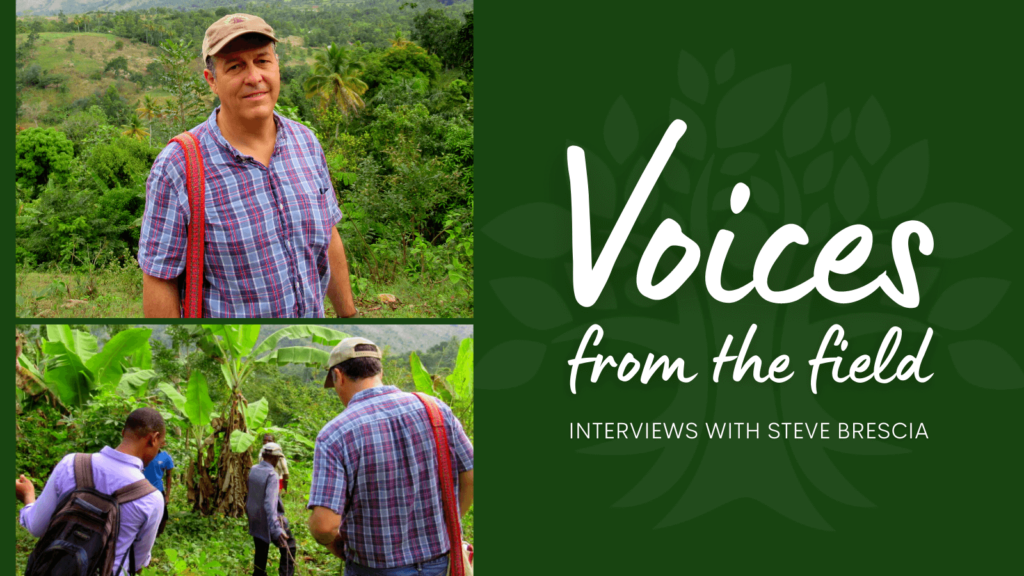Voices From the Field: Interviews with Steve Brescia
At Groundswell International, collaboration is at the heart of what we do. We have always worked closely with local farmers in West Africa, the Americas, and South Asia and partner organizations in those areas because we know that the needs of every community are unique, and no one understands those unique needs better than the locals experiencing them.

While our focus has always been on enabling local farmers to support their communities by creating healthy farming and food systems, we believe we can do even more.
Currently, the world, including the US and the international communities we work to support, is facing multiple crises related to our economic and political models, climate change, migration, and beyond. How different communities view these crises vary, but the work we do with our local partners is deeply rooted in understanding the effects of these challenges on our communities and how to solve them. As awareness of the damage from systemic racism and colonialism grows globally, it becomes increasingly important to amplify the voices of folks from the communities most impacted by these issues.
Voices From the Field
Our Executive Director and co-founder, Steve Brescia, spent last year speaking with leaders from our local partner organizations and our regional coordinators to understand the unique views and needs of their communities. What ways are they seeing racism and colonialism directly play out in their countries? How are political and economic issues like food scarcity, climate change, and environmental crises affecting their communities?
Rather than sharing curated facts about global challenges, we are focusing on raising others’ voices so you can hear straight from our partners and coordinators about the challenges facing their communities and the work they are doing to tackle those challenges head-on. Challenges like a Western influence in Mali that is causing a domino effect crisis: “We see that the fertility of the soil is declining,” Pierre Demble of partner organization Sahel Eco says. “People are more or less in a mindset in their mind that if you don’t use chemical fertilizer you will not produce. Although they know in the past they were using compost which was giving them very good production, but today due to all this marketing and the media, the people think if we don’t use chemical fertilizer we will not produce. So we have here a crisis of the agriculture production which is also affecting the economic power of the community.”
This focus on individual community voices just makes sense, because our partner organizations are doing work at the microlevel in their communities. Partners like Fatou Batta of Association Nourrir Sans Détruire in Burkina Faso, who says their “program is trying to not exacerbate the tension between the community, but working to reduce the inequality, to reduce vulnerability, to make sure people can live together, share their concern, discuss their concern and identify the solution or the activities they can do together so that we improve their lives. So what we can do at a microlevel is that, in the villages.”
From our partners, you will also hear about the opportunities being created in these communities, like in Mali, where Dembele says they are working to enable youths “to really reform our governance system to actually give the power to the people, how they want the community to be governed in the coming year.”
The work we do on the ground is important, but sometimes the best way to empower is to sit back and allow other voices to be heard. It is only through true allyship, listening, and mutual learning that we can truly understand these challenges to catalyze change and reverse the downward spiral of poverty and vulnerability.
Please join us in listening.
